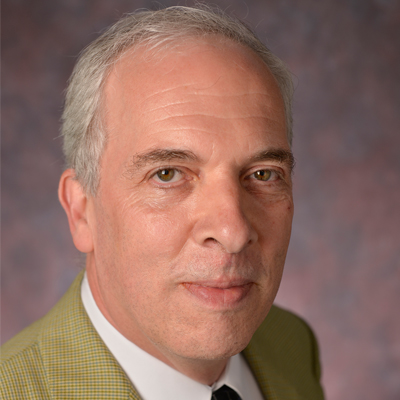Understanding the connection between air pollution and respiratory infections
Air pollution has been identified by WHO as a major global health problem. In fact, one in eight deaths worldwide are related to air pollution. Therefore, it has become critical to understand the mechanisms that allow air pollutants to affect the immune response and the ways in which they lead to deadly diseases. Dr. Stephan Schwander, Associate Professor of Public Health and Director of the Center for Global Public Health at Rutgers University, explores if there is a connection between exposure to air pollution in cities and the likelihood of developing respiratory infections such as tuberculosis. Understanding this possible connection will provide the impetus for the implementation of air pollution regulations in low and middle income countries, and may lead to new recommendations for infection prevention.
Few researchers worldwide are committed to the study of pollutants impact on immune response and Dr. Schwander is renowned for his research track record in human lung immunity, and particularly in the context of tuberculosis. This expertise has allowed him to integrate novel questions into his research and to successfully obtain government funding due to the incredible significance of his work. Additionally, by partnering with global health organizations, and researchers in Mexico City, Canada, and at Duke University, he and his team are able to cast a wide net to study diverse populations and in the future, deliver robust services.
Current research includes:
- Mexico: Dr. Schwander and his team are conducting translational research in Mexico City to understand how air pollution impacts may lead to respiratory infections, and specifically to tuberculosis. He believes that by studying the different ways that pollution may impact individuals living within the city, they may be able to prevent tuberculosis in the future.
- Uganda: Over the last two decades when Dr. Schwander went to visit Uganda, he realized that air pollution was steadily growing worse. However, local government officials and institutions have yet to measure the air pollution levels. Therefore, Dr. Schwander began bringing monitors on each of his visits to record the air pollution levels. Now, he and his team are helping the city of Kampala to create a plan to mitigate pollution levels.
- United States: Although tuberculosis is primarily a disease in low and middle income countries, the infection knows no borders. As stated in March 2015 by Philip LoBue, director of the CDC’s Division of Tuberculosis Elimination “most cases are now likely brought into the country from abroad,” getting rid of the disease in this country “depends on progress against it elsewhere.” Therefore, Dr. Schwander’s research abroad has startling implications for cases of tuberculosis in the United States.
- Education: As the Director of the Center for Global Public Health at Rutgers University, Dr. Schwander helps to promote knowledge, research, and education within global public health. He is currently developing a Master's program in Public Health with concentration in Global Public Health at the Center for Global Public Health that will have its first students joining in 2016. He also organizes and expands a Global Public Health Seminar Series at the Center for Global Public Health to engage and educate students and faculty at Rutgers and beyond in global public health topics. As the supervisor of a busy research lab he is actively involved in training biomedical approaches to studying global health questions. Therefore, his efforts are concentrated on training the next generation of scientists to engage in issues of global health.

Bio
As a high school student, Dr. Stephan Schwander was very interested in biology and nature. Studying medicine later on confirmed his interest in biological sciences and also allowed him to prepare for work that he felt was relevant in terms of ethics and his hope to help others. While he loved working with patients, Dr. Schwander realized that he had many more questions about mechanisms of disease than most of his colleagues. Therefore, he gratefully accepted a position as a physician at one of the three major clinical and research institutions for tropical medicine in Europe, the Bernhard Nocht Institute for Tropical Medicine in Hamburg, where he could work as both a provider and a scientist.
At the time that Dr. Schwander was at the Bernhard Nocht Institute, there was no life prolonging treatment available for HIV / AIDS. Being interested in HIV and AIDS, he became one out of five clinical researchers in Germany at the time to study HIV-infected persons in a longitudinal cohort study with the goal to understand cofactors in the development of AIDS. He also became involved in clinical trials assessing the efficacy of the first available anti-HIV drugs in addition to the first pilot anti-HIV vaccine (F46).
While his work in the lab kept Dr. Schwander focused on HIV, his work in the clinic gave him exposure to patients with tuberculosis, a disease he had first encountered as a medical student in Lima, Peru, in patients that were poor. In fact, clearly in his memory was a patient that lacked the resources to afford adequate treatment and therefore coughed up blood into a bowl on the floor of the outpatient department for many days. Patients like the one in Peru and others that he met while at the Bernhard Nocht Institute for Tropical Medicine inspired him to continue to work with patients that lacked resources but needed services.
In 1992 and 1993, Dr. Schwander’s clinical research interests in HIV and AIDS provided him with the opportunity to study in Uganda at the Joint Clinical Research Center in Kampala. This study was the first randomized clinical tuberculosis trail in AIDS patients in Africa and showed clear superiority of one of the drug regimens over the other thus contributing to a change in treatment recommendation of HIV-associated tuberculosis in Europe and the US in addition to serving patients in Uganda. Furthermore, his work with immunosuppressed patients triggered an interest in the immune system more generally.
Following his research in Uganda, Dr. Schwander moved into a research lab at Case Western University where he began to study the human immune system in tuberculosis patients and focused on the human lungs, which are the entry sites for the bacteria that cause tuberculosis. This work led him to Mexico City where he studied similar questions about how to protect at-risk patients from tuberculosis. This led him to his current research and has continued to fuel a passion for helping patients that are susceptible to disease due to environmental conditions that are out of their control.
In his free time, aside from research, Dr. Schwander enjoys travel. Because he met his wife in Uganda as a recent graduate, he and his family often make trips back to visit family and explore. His love of travel helps Dr. Schwander maintain a curiosity about life and an excitement for where future research may take him.
Website: http://molbiosci.rutgers.edu/faculty/schwander_s.html
In the News
Awards
Excellence in Research Award for the Academic Year 2011-2012
Foundation of the University of Medicine and Dentistry of New Jersey
Chairman of Symposium entitled ‘Macrophages and Monocytes’, May 4-8, 2012
At the 99th Annual Meeting of The American Association of Immunologists (AAI), Boston MA
Chair of RBHS Chancellor’s Rutgers Global Health Strategic Planning Working Group, 2013-2014
Chairman ‘TB Genomics’ mini-symposium, May 16-21, 2014
At The American Thoracic Society (ATS) Annual Meeting
Chairman ‘Inhaled Smoke and Lung Immunity to Tuberculosis and Other Infections’ mini-symposium, May 15-May 20, 2015
At The American Thoracic Society (ATS) Annual Meeting, Denver, CO


